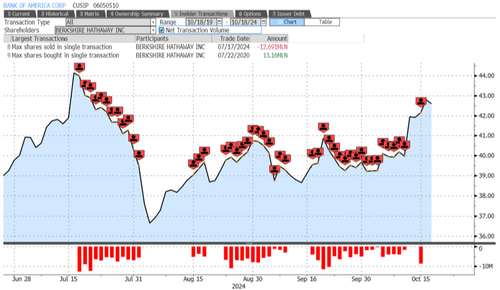
This captured image shows a Wall Street Journal’s news article about Korea Zinc's ownership battle. Captured from WSJ homepage Financial watchdog warns against any market-disrupting activities in ongoing tender offer By Jun Ji-hye Private equity firm MBK Partners slammed Korea Zinc and its Chairman Choi Yoon-beom for distributing a press release to reporters that “seriously distorted” a Wall Street Journal’s (WSJ) news article about the ongoing disputes over the management rights of the world’s largest zinc smelter. Citing the recent WSJ report, “The $1.
7 Billion Takeover Brawl Fueled by a Fear of China,” Korea Zinc said in its press release Saturday that the WSJ highlighted growing concerns among Western countries and governments regarding MBK’s “hostile M&A” attempt targeting Korea Zinc. The smelter also said the WSJ pointed to concerns that the U.S.
-led efforts to create a raw material supply chain could be disrupted by China, if MBK acquires Korea Zinc. The private equity firm said, however, that no such statement, wording or phrasing can be found anywhere in the WSJ article. “It is shocking beyond belief that Korea Zinc not only labels MBK Partners, a domestic private equity firm, as being backed by Chinese capital but also distorts a foreign media outlet’s article to distribute such claims in its press release.
This abnormal form of publicity is truly appalling,” an MBK official said. Read More MBK raises tender offer price to buy out Korea Zinc Korea Zinc’s corporate governance severely damaged under Choi’s leadership: MBK Tender offer for Korea Zinc aimed at improving corporate governance: MBK MBK has joined forces with the family of Korea Zinc’s co-founder, which runs Young Poong, the largest shareholder of the smelter. The private equity firm is conducting the tender offer to inherit the position as the smelter’s largest shareholder and oust Choi, the grandson of the other co-founder.
The WSJ reported that fueling the dispute in an ownership fight over the zinc smelter is “fears the company could one day fall into China’s hands.” Such concerns have been raised by some politicians here as well as the Korea Zinc’s union, who noted that a private equity firm, in general, aims to generate profits through a resale. They raised the possibility that MBK’s ultimate goal may be to sell the smelter to foreign entities, including China.
In its efforts to defend its management rights, Korea Zinc and Choi have used these claims to attack MBK and its tender offer, claiming that the smelter’s core technology would be leaked overseas if the private equity firm took control. However, MBK claimed that the offer was aimed at improving the smelter’s corporate governance, which Choi severely undermined, as he sought to privately exploit and take control of the company and paralyze the firm’s board of directors. Kim Kwang-il, a partner at MBK Partners, speaks during a press conference at Lotte Hotel Seoul, Sept.
19. Yonhap “MBK, emphasizing its overwhelming ties and investments within both Korea and Japan, has promised to not sell Korea Zinc to the Chinese,” the WSJ reported. “That pledge hasn’t toned down the rhetoric from Korea Zinc and its allies.
” The New York-based newspaper also quoted Kim Kwang-il, an MBK partner overseeing the Korea Zinc deal, as saying that MBK has never sold a Korean company to a Chinese buyer, noting that Chinese entities make up less than 5 percent of MBK’s total investors. MBK, for its part, said when there is a shareholder dispute, it is proper and normal for the company to remain neutral. “The Korea Zinc public relations team represents the company, not the personal interests of Chairman Choi,” the MBK official said.
Meanwhile, Lee Bok-hyun, chief of the Financial Supervisory Service (FSS), the financial watchdog, said Sunday that the ongoing tender offer for Korea Zinc appears to be escalating into excessive competition, emphasizing that strict measures will be taken if any market-disrupting activities or unfair trading practices occur. “Close market monitoring is necessary to ensure that no unfair trading practices, stemming from the spread of baseless rumors or misinformation related to the tender offer, lead to investor confusion or misjudgment,” Lee said during a meeting with officials. “If necessary, swift investigations should be conducted, and any detected illegal activities should be dealt with strictly with a zero-tolerance policy.
”.














